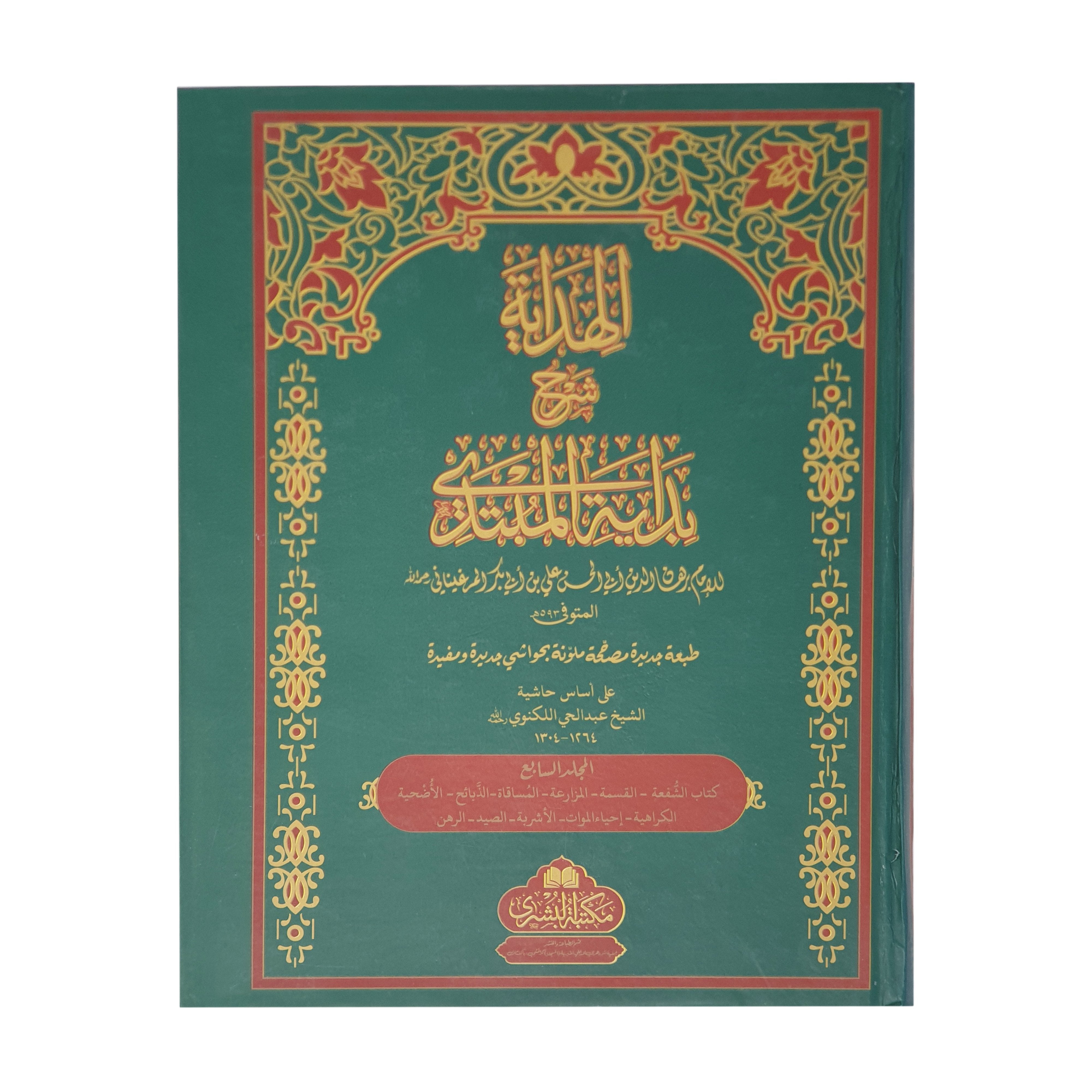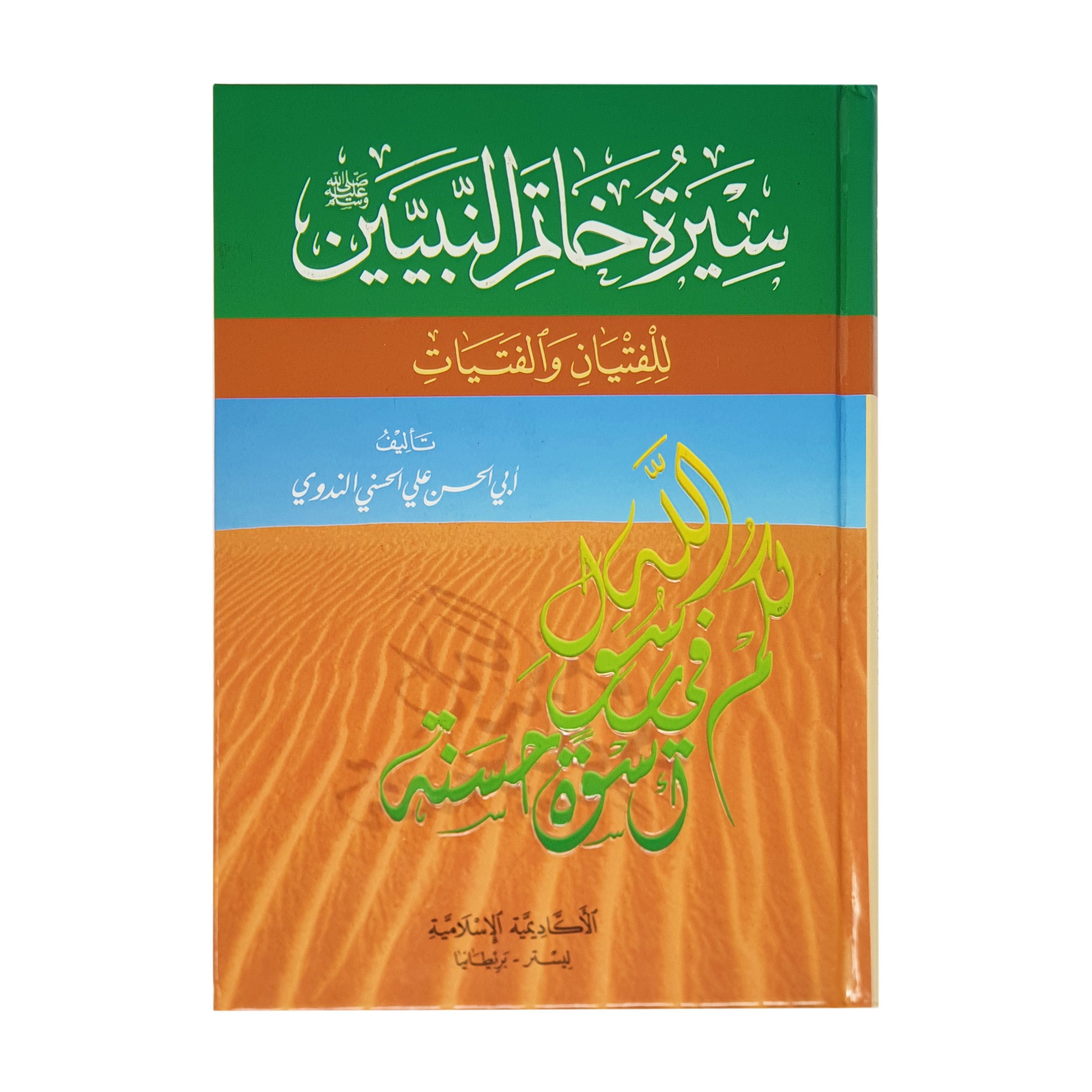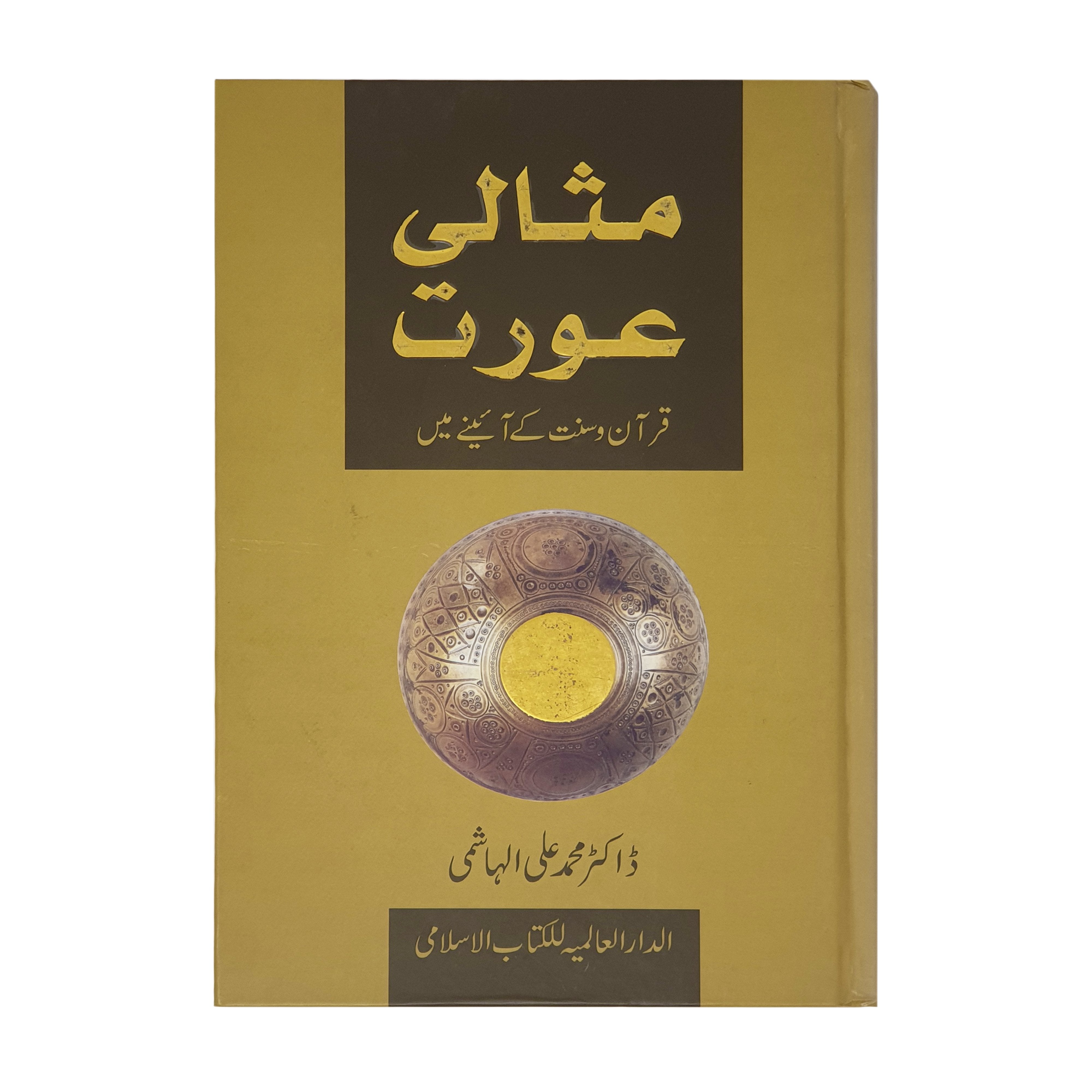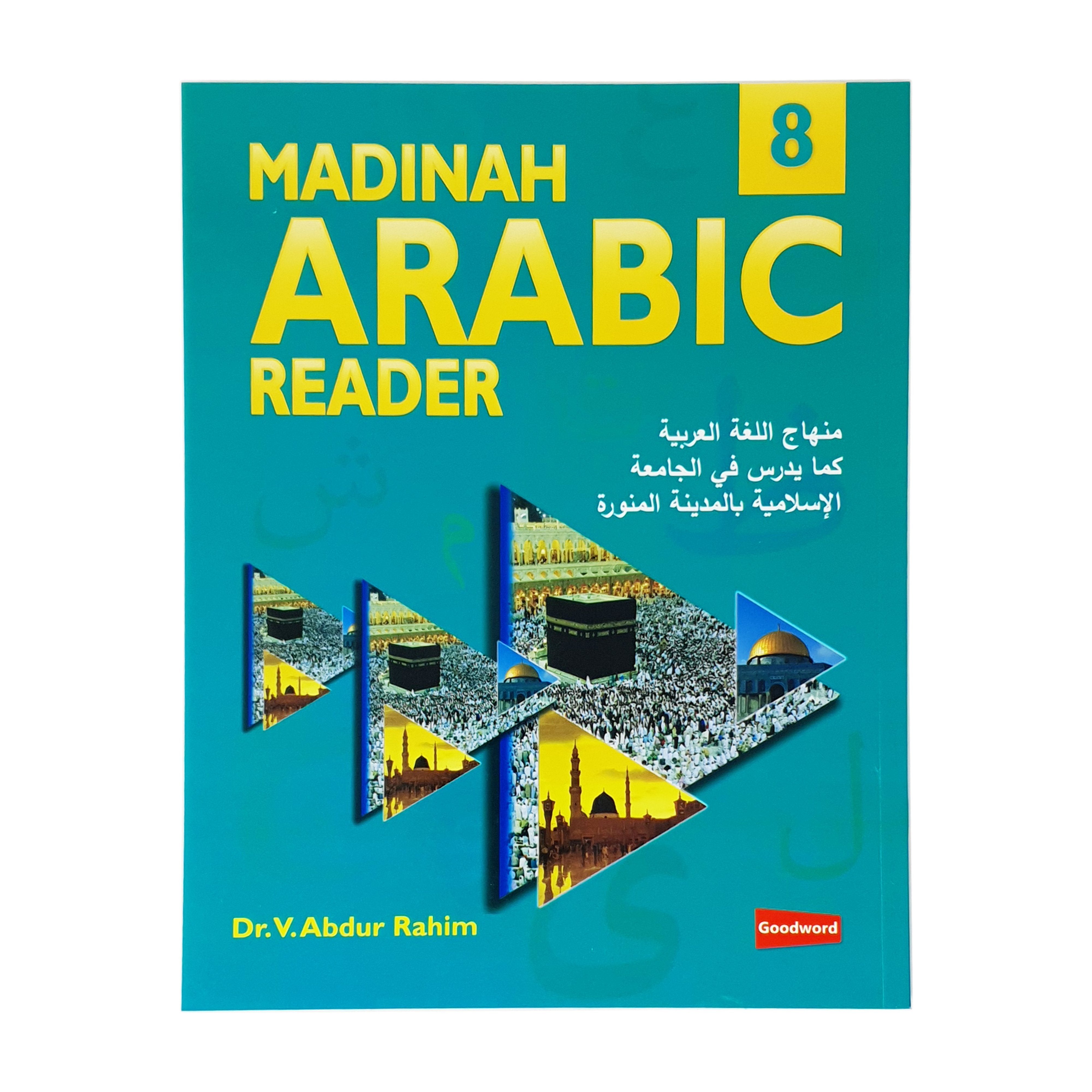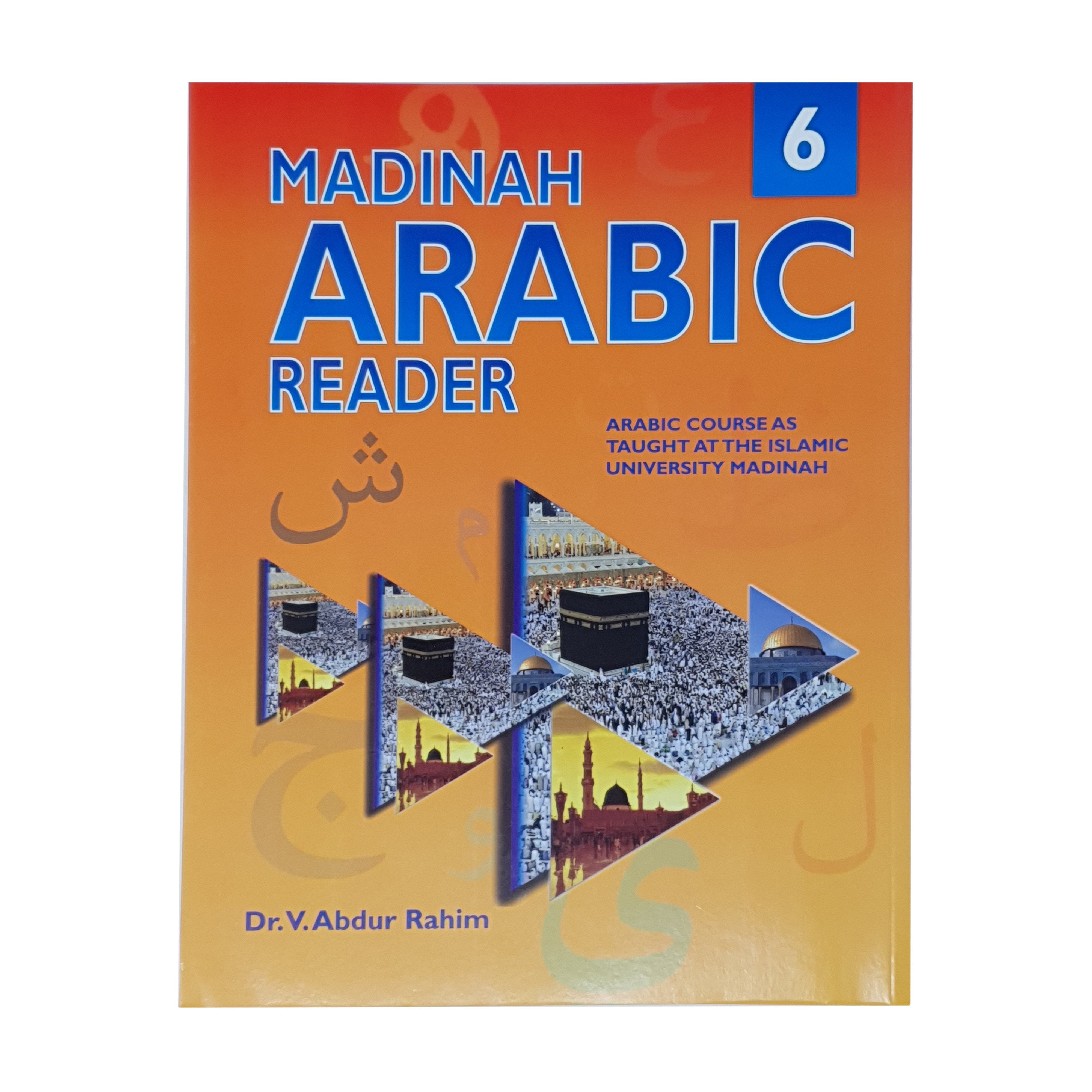Al-Hidayah 8 Vol (Arabic)
Al-Hidayah fi Sharh Bidayat al-Mubtadi is considered to be one of the most significant compendia of Hanafi jurisprudence (fiqh). The book played a vital role in the progress and amalgamation of Islamic and British law known as Anglo-Muhammadan l...
Al-Hidayah fi Sharh Bidayat al-Mubtadi is considered to be one of the most significant compendia of Hanafi jurisprudence (fiqh). The book played a vital role in the progress and amalgamation of Islamic and British law known as Anglo-Muhammadan law.
The author, Shaykh al-Islam Burhan al-Din al-Farghani al-Marghinani (d.593AH/1197CE), was regarded to be one of the most highly esteemed jurists of the Hanafi school. Al-Hidayah is a concise commentary on al-Marghinani's own compendium al-Bidayat al-mubtadi, which was in turn based on Mukhtasar by al-Quduri and al-Shaybani's al-Jami‘ al-saghir. The significance of al-Hidayah in the Hanafi school lay not in its intrinsic virtues, but in its role as an authoritative and convenient basis for further commentaries. Thus, it constituted not a statement of the law in itself, but rather an interpretative framework for elaboration of jurisprudence in different times and places.
During the era of British colonial rule in South Asia, al-Hidayah took a central role in the development of the amalgam of Islamic and British law known as Anglo-Muhammadan law. Since the Hanafite school was predominant on the Indian sub-continent, the book was influential there as a substrate for commentaries, and — supplemented by professorial exposition — as a textbook for law colleges (madrasas). In the late 18th century, William Jones commissioned its translation into Persian, and this version was used by Charles Hamilton to produce an English translation. The translation allowed British colonial judges to adjudicate in the name of sharia, which amounted to an unprecedented codification of Hanafi law, severed from its Arabic-language interpretative tradition. This served to accomplish two goals, which had been long pursued by the British in India: firstly, it limited the judicial discretion of the qadis and the influence of muftis in the sharia system, reducing their earlier role as "middlemen" between the Islamic legal tradition and the colonial administration; and, secondly, it replaced the interpretative mechanisms of fiqh by those of English law.
At Al Aqsa Bookshop we have a large collection of Islamic books that are in Urdu, Bangla and Arabic all available in store and online. We stock a wide category of books ranging from Quran translation, Hadith stories, Seerah, Islamic history and much more. Our Online Islamic Bookshop contains books in all major categories including all the popular Islamic Books. Our Online Islamic Books cover a range of different topics and we have books from many renowned scholars.
Our Islamic Language collection contains books such Arabic grammar for beginners, Behesti Zewar in bangla and urdu and much more. We also have on our Online Islamic bookshop all the major Islamic books.
Add a review
Al-Hidayah fi Sharh Bidayat al-Mubtadi is considered to be one of the most significant compendia of Hanafi jurisprudence (fiqh). The book played a vital role in the progress and amalgamation of Islamic and British law known as Anglo-Muhammadan law.
The author, Shaykh al-Islam Burhan al-Din al-Farghani al-Marghinani (d.593AH/1197CE), was regarded to be one of the most highly esteemed jurists of the Hanafi school. Al-Hidayah is a concise commentary on al-Marghinani's own compendium al-Bidayat al-mubtadi, which was in turn based on Mukhtasar by al-Quduri and al-Shaybani's al-Jami‘ al-saghir. The significance of al-Hidayah in the Hanafi school lay not in its intrinsic virtues, but in its role as an authoritative and convenient basis for further commentaries. Thus, it constituted not a statement of the law in itself, but rather an interpretative framework for elaboration of jurisprudence in different times and places.
During the era of British colonial rule in South Asia, al-Hidayah took a central role in the development of the amalgam of Islamic and British law known as Anglo-Muhammadan law. Since the Hanafite school was predominant on the Indian sub-continent, the book was influential there as a substrate for commentaries, and — supplemented by professorial exposition — as a textbook for law colleges (madrasas). In the late 18th century, William Jones commissioned its translation into Persian, and this version was used by Charles Hamilton to produce an English translation. The translation allowed British colonial judges to adjudicate in the name of sharia, which amounted to an unprecedented codification of Hanafi law, severed from its Arabic-language interpretative tradition. This served to accomplish two goals, which had been long pursued by the British in India: firstly, it limited the judicial discretion of the qadis and the influence of muftis in the sharia system, reducing their earlier role as "middlemen" between the Islamic legal tradition and the colonial administration; and, secondly, it replaced the interpretative mechanisms of fiqh by those of English law.
At Al Aqsa Bookshop we have a large collection of Islamic books that are in Urdu, Bangla and Arabic all available in store and online. We stock a wide category of books ranging from Quran translation, Hadith stories, Seerah, Islamic history and much more. Our Online Islamic Bookshop contains books in all major categories including all the popular Islamic Books. Our Online Islamic Books cover a range of different topics and we have books from many renowned scholars.
Our Islamic Language collection contains books such Arabic grammar for beginners, Behesti Zewar in bangla and urdu and much more. We also have on our Online Islamic bookshop all the major Islamic books.
